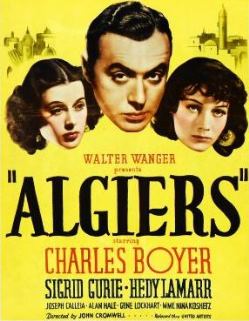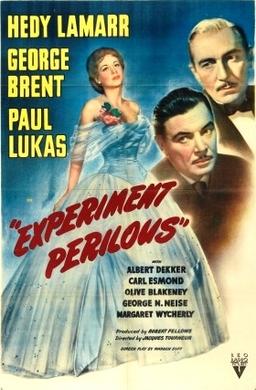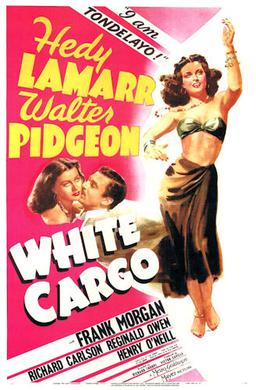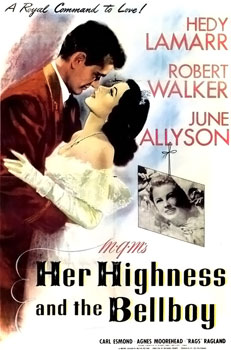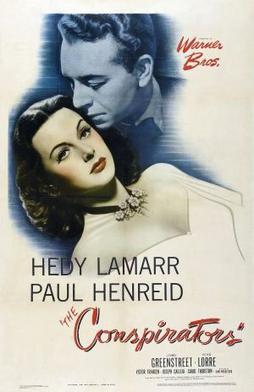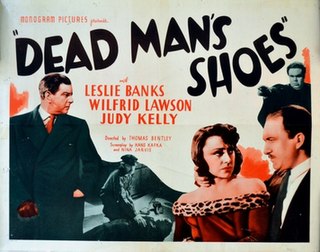Plot
In 1935, rising French diplomat David Talbot (William Powell) and his beautiful much younger bride Lucienne (Hedy Lamarr) are celebrating their third month of marriage. They are interrupted by a note from the mysterious Carlos Le Duc (Vladimir Sokoloff) demanding $1 million francs from David. Failure to make good will force Le Duc to reveal Talbot's identity to the police as a welsher.
Pretending to cooperate, Talbot appears at the ransom drop, leaves a package of wrapped paper in lieu of the banknotes, and Le Duc is apprehended by hidden gendarmes. During the trial which follows Le Duc’s defense is that he was seeking repayment of a legitimate debt owed by a former business associate, incurred in 1922. Talbot is accused of being that man, career thief Jean Pelletier.
The prosecution denies that Talbot is Pelletier, and charges that Le Duc is guilty of extortion. Talbot maintains that amnesia he sustained in a devastating train accident that same year prevents him from remembering anything from that time. Talbot's identity is affirmed by the psychologist who treated him following the wreck, Dr. Tessier (Felix Bressart), ever since a family friend. Talbot's strategy is foiled by a psychologist for the defense, Dr. Alex Dubroc (Sig Ruman), who tricks Tessier into conceding the unreliability of a diagnosis of amnesia. He suggests Talbot fabricated his to hide his real identity. In fact, no one really knows, as two similar men had boarded the train but only one survived. Was it Pelletier or Talbot?
A glamorous night club chanteuse is introduced on behalf of the defense, Michelle Allaine (Claire Trevor). She maintains she has never seen Talbot before, until, at mere arm's length, their gazes lock and she spontaneously gasps a longing “Jean”...! The implication to everyone is that they were former lovers.
A surprise witness then appears, who volunteers to testify on Talbot‘s behalf, Henri Sarrou (Basil Rathbone). Claiming to know Talbot before his injuries he convinces the court David's identity is genuine, in spite of the previous romantic imprecation. Le Duc is convicted.
Shortly after, Sarrou cavalierly appears, unannounced and mid-soiree, at the Talbot home, where he privately demands the same million francs as Le Duc had. Half the loot, he claims, that his partner Pelletier - the man ever since known as Talbot - not only made off with but did so after a murder Sarrou witnessed Pelletier commit. Talbot orders him out of his home as a scoundrel.
Not long after Mlle. Allaine also makes a surprise appearance at the Talbot home, pretending to apologize to him for her implicating sigh at the trial but really there to coyly reveal for just a fleeting moment a locket holding a cameo of the pair in smiling embrace. She ensures she's "caught" with him alone just afterwards in David's study by his wife, raising the suspicion of prior intimacy and future infidelity. Shaken by what he has seen, Talbot begins to become ever more convinced he is Pelletier, and resolutely determined to keep his writhings from Lucienne.
Anxious to see Allaine again and draw her out further Talbot later slips off and visits her at the nightclub where she works. She haughtily upbraids him for masquerading as an eminent diplomat, rumored shortly to be France's next ambassador to Brazil, living lavishly while abandoning his aged peasant mother to penury. She dares him to go see for himself, then gives him an address. He goes to a hovel and is riven to his core by the sad old woman who recognizes him but refuses his charity. Just leave me alone, to my loneliness, Madame Pelletier (Margaret Wycherly) pleads, I am old and need my rest.
He races back to the club to find Sarrou and Allaine together. Sarrou gives him a deadline to pay the million francs. Talbot returns home, sneaks his passport out of a wall safe while just dodging his wife, then makes reservations the next day to flee alone to the Far East. Before he can Sarrou chastises him, recounting his every furtive move. He is cornered and must pay.
Where to get the money? He wouldn't have enough even if he sold his house, he tells the blackmailer.
Why raid his office safe, where he keeps a cache of millions of the nation's francs to make unrecorded payments in sensitive diplomatic matters. He speaks the daring idea aloud as it dawns on him. Sarrou jumps at the opportunity to accompany him and immediately seize his ransom.
The pair sneak past the guards at the foreign ministry. Talbot turns over the cash. Seeking to thwart her husband's self-destruction Lucienne appears, too late to prevent the crime. Just then flashlights appear - it's the police! Everyone's caught red-handed. Disaster!
No, they're there to arrest Sarrou. Talbot had alerted the gendarmes ahead of time - just as he had with Le Duc - having realized when looking incidentally at his passport photo that his hair had been parted on the same side in the cameo in Allaine's locket. Impossible, as a scar from the rail accident had forced him to switch. The photo with his "lover" purportedly taken before the wreck had to have been a forgery, impelling his surreptitious set-up of the sting.
Caught up in the meltdown Allaine confesses the deceit, and the bottle-loving former actress who played Madame Pelletier implicates herself. With all four blackmailers behind bars Talbot is cleared, his marriage saved, and ambassadorial honors lie dead ahead.




